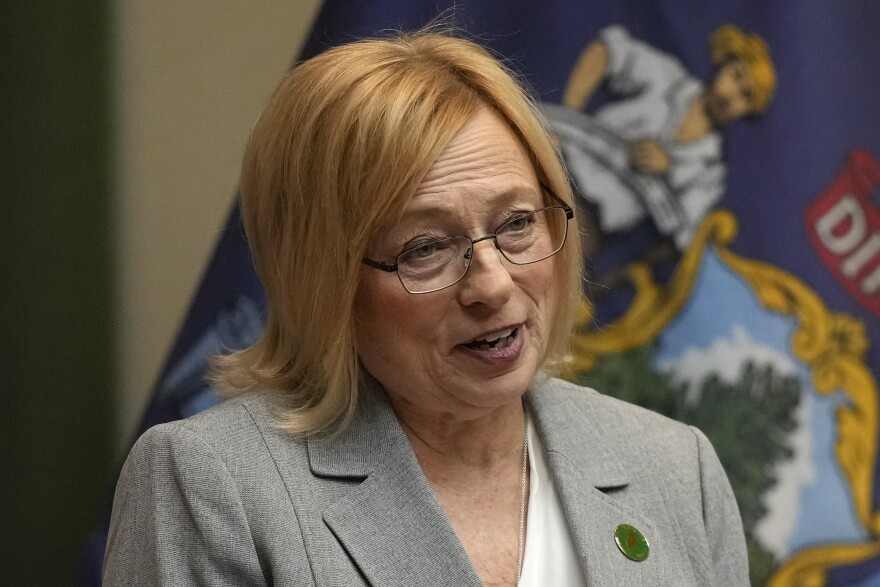Gov. Janet Mills is expressing her "deep concern" about the potential impacts of the budget bill now pending in Congress.
Mills wrote in a letter to Maine's congressional delegation that the budget bill could have "profoundly harmful consequences" for the state and its people. The budget reconciliation bill — also dubbed the "One Big Beautiful Bill" by President Trump and his supporters — contains much of the president's domestic agenda, including an extension of the 2017 tax cuts financed through steep cuts to Medicaid and other social services.
"If enacted, thousands of Maine people will lose health coverage; vulnerable rural hospitals will face increased financial pressure; Maine families will lose access to healthy food, the end of clean energy and energy efficiency tax credits will eliminate jobs and raise energy costs, and hardworking Maine people will continue to bear an unfair tax burden while the wealthiest Americans will receive a tax cut," Mills wrote to the delegation.
Mills cited an independent study suggesting that Maine could lose $4.5 billion in federal Medicaid dollars over the next decade. Roughly 400,000 Maine residents, or nearly one-third of the state's population, is enrolled in MaineCare, which is the state's Medicaid program.
Mills wrote that more people without insurance will lead to hospitals having to absorb the costs of offering uncompensated care, putting an additional strain on rural hospitals already struggling to maintain services or stay open. The Democrat also wrote that a cost-shift in the Supplemental Nutrition Assistance Program — also known as SNAP or food stamps — would increase Maine's costs by $60 million annually, which she said would be unaffordable. SNAP currently serves 175,000 residents.
Mills also warned that proposals to repeal tax credits and federal funding would undermine the growing renewable energy industry in Maine and derail efforts to transition more homes away from heating oil.
"As you can see, I have deep concerns about the significant impact this bill will have on the health and safety of Maine people, our state’s financial future, and the stability of Maine’s economy," Mills wrote.
But Mills did note one tax provision under consideration that she would support: increasing the state and local taxes that individuals can deduct from the federal tax filings from $10,000 to $40,000.
The Republican-controlled House passed the reconciliation bill in May. Both of Maine's House members, Democrats Rep. Chellie Pingree and Jared Golden, joined other members of their party in voting against the measure.
The Senate is working on its version now and has made substantial changes to the version from the House.
Independent Sen. Angus King has already said that he is opposed to the bill, calling it "the worst, most regressive, and most harmful piece of legislation I've ever seen" during a conference call with reporters earlier this week.
Republican Sen. Susan Collins has not yet said how she will vote on the bill. She has also been critical of aspects of the bill, especially cuts and other changes to Medicaid that could put additional financial pressure on rural hospitals. But she is under intense political pressure from both the left and the right as Republicans can only afford to lose three votes to pass the bill with a simple majority if all of the Democrats and independents oppose it.
Republicans were hoping to begin voting on the bill as early as Friday but were dealt a blow this week. The nonpartisan Senate parliamentarian ruled that key aspects of the proposed Medicaid cuts and cost-savings in the Senate bill did not meet the rules for approving the measure with a simple majority, forcing Republicans to examine potential adjustments.
Meanwhile, some House Republicans are signaling that they are unhappy with the substantial changes to the bill being discussed in the Senate. Trump has called on the Republican-controlled Congress to deliver the bill to him for signing by July 4.



